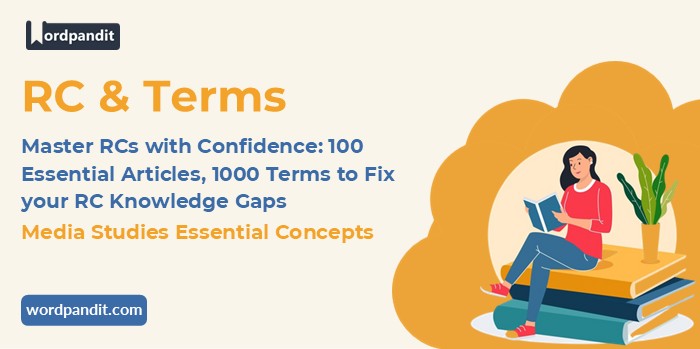📰 Media Studies: Essential Concepts for Reading Comprehension
Media studies examine the dynamic landscape of communication in society, covering the tools, platforms, and effects of media on individuals and communities. Passages in reading comprehension often delve into media-related topics, analyzing how information is created, distributed, and consumed. Understanding these concepts enhances your ability to grasp arguments, evaluate evidence, and critically assess viewpoints presented in passages.
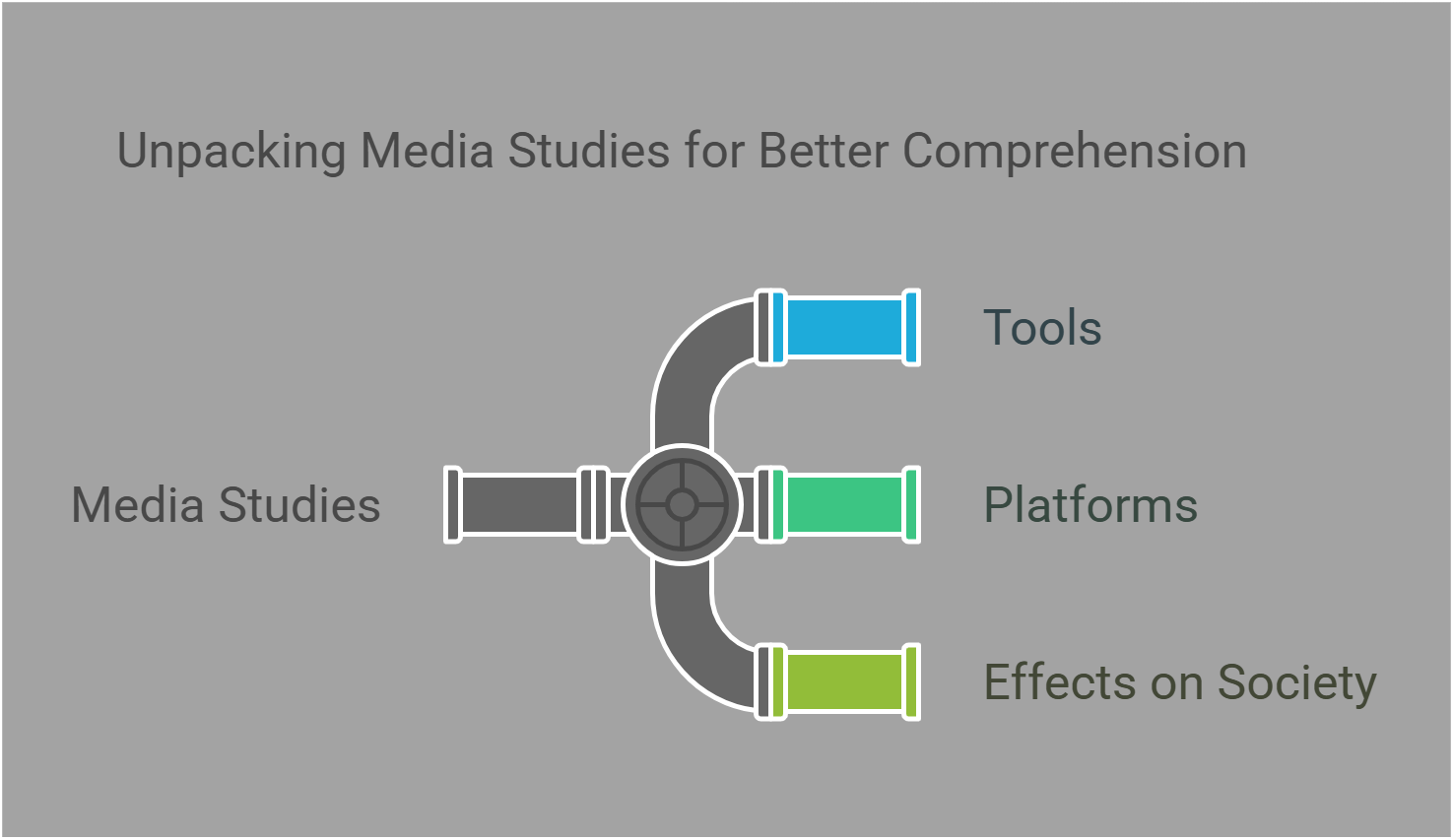
📋 Overview
In this guide, we’ll explore these key Media Studies-related concepts:
- Media Literacy
- Impact of Social Media
- Fake News and Misinformation
- Media Ownership and Control
- Role of Journalism
- Media Ethics
- Digital Media
- Broadcast Media
- Media Effects
- Communication Theories
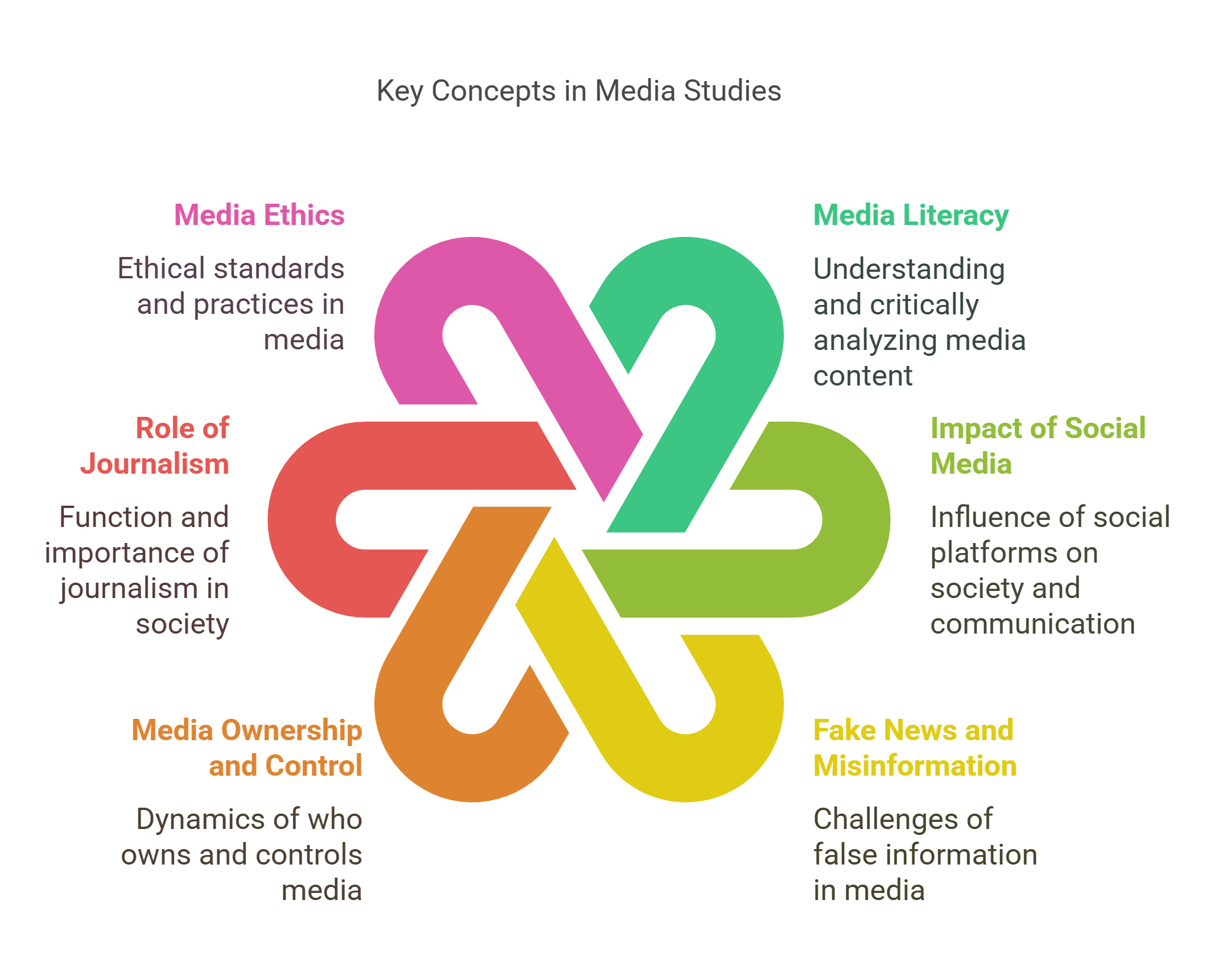
🔍 Detailed Explanations
1. Media Literacy
Media literacy refers to the ability to access, analyze, evaluate, and create media content effectively. It involves critical thinking skills to understand media’s role in shaping perceptions and behaviors. In RC passages, media literacy helps in identifying biases, interpreting messages, and evaluating the credibility of sources.
- Critical evaluation of media messages.
- Understanding media influence on society.
- Analyzing media production and consumption.
- Decoding biases in media narratives.
- Fostering informed citizenship.
Explained Simply: Imagine you have a superpower to know when a TV ad or a YouTube video is trying to trick you. Media literacy is like that superpower, helping you understand what’s true, what’s fake, and why someone made that content.
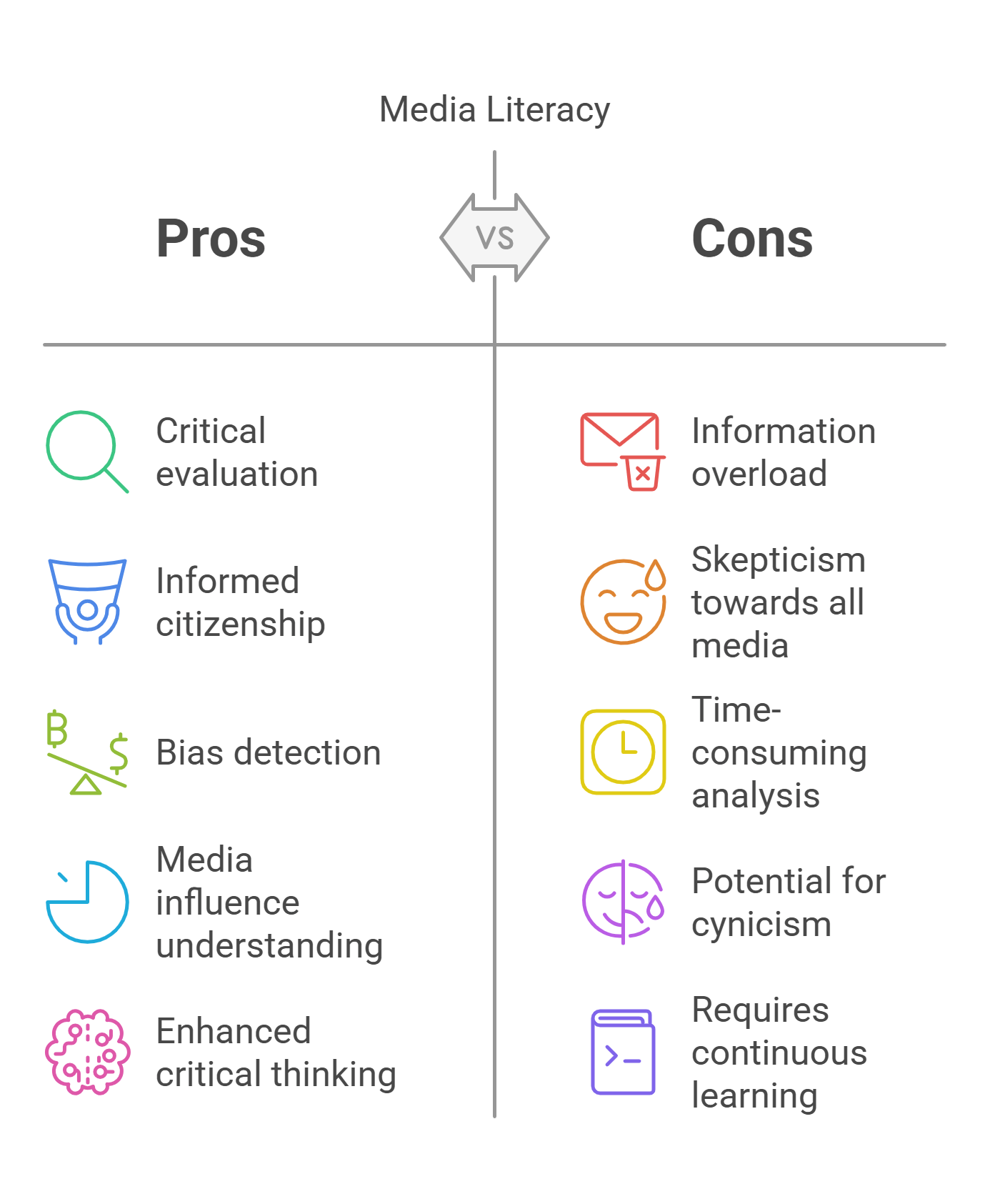
2. Impact of Social Media
Social media platforms revolutionized how people communicate and share information. While fostering global connections, they also raise concerns about privacy, mental health, and the spread of misinformation. RC passages often explore their societal implications.
- Facilitates global communication.
- Amplifies individual voices and movements.
- Raises privacy and mental health concerns.
- Spreads both information and misinformation.
- Influences public opinion.
Explained Simply: Social media is like a giant digital playground where everyone can talk, share pictures, or play games. But just like in any playground, some people might say things that aren’t true or could hurt others.
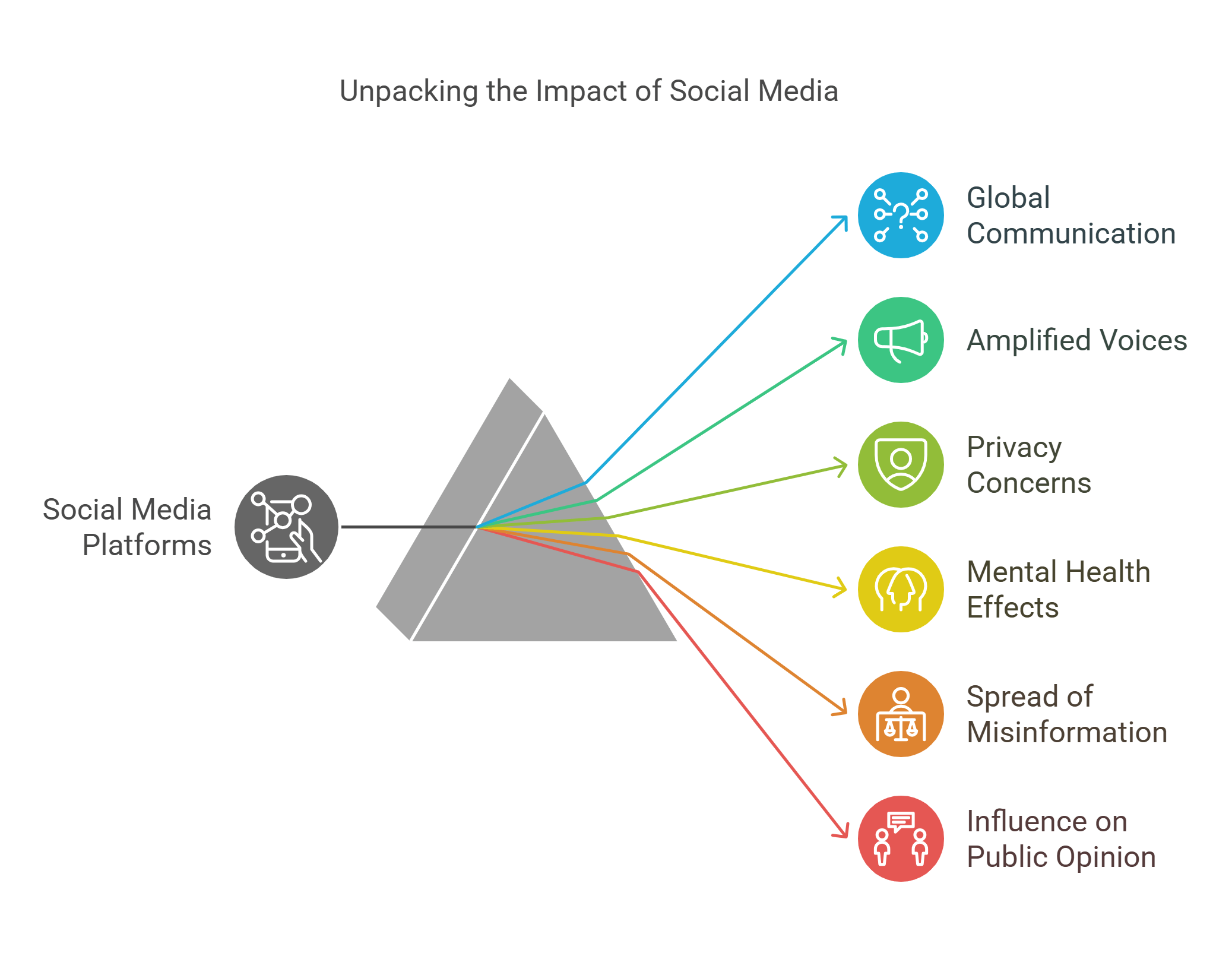
3. Fake News and Misinformation
Fake news and misinformation describe the spread of false or misleading information, often with the intent to deceive or manipulate public opinion. In RC passages, this concept helps analyze arguments related to media trust and the role of fact-checking.
- False information spread intentionally or unintentionally.
- Impacts public trust and decision-making.
- Role of algorithms in amplifying fake news.
- Fact-checking and verification as countermeasures.
- Ethical and societal implications.
Explained Simply: Fake news is like someone telling you a made-up story about a friend to make you believe something that’s not true. Learning how to spot fake news is like being a detective who checks if the story is real or not.
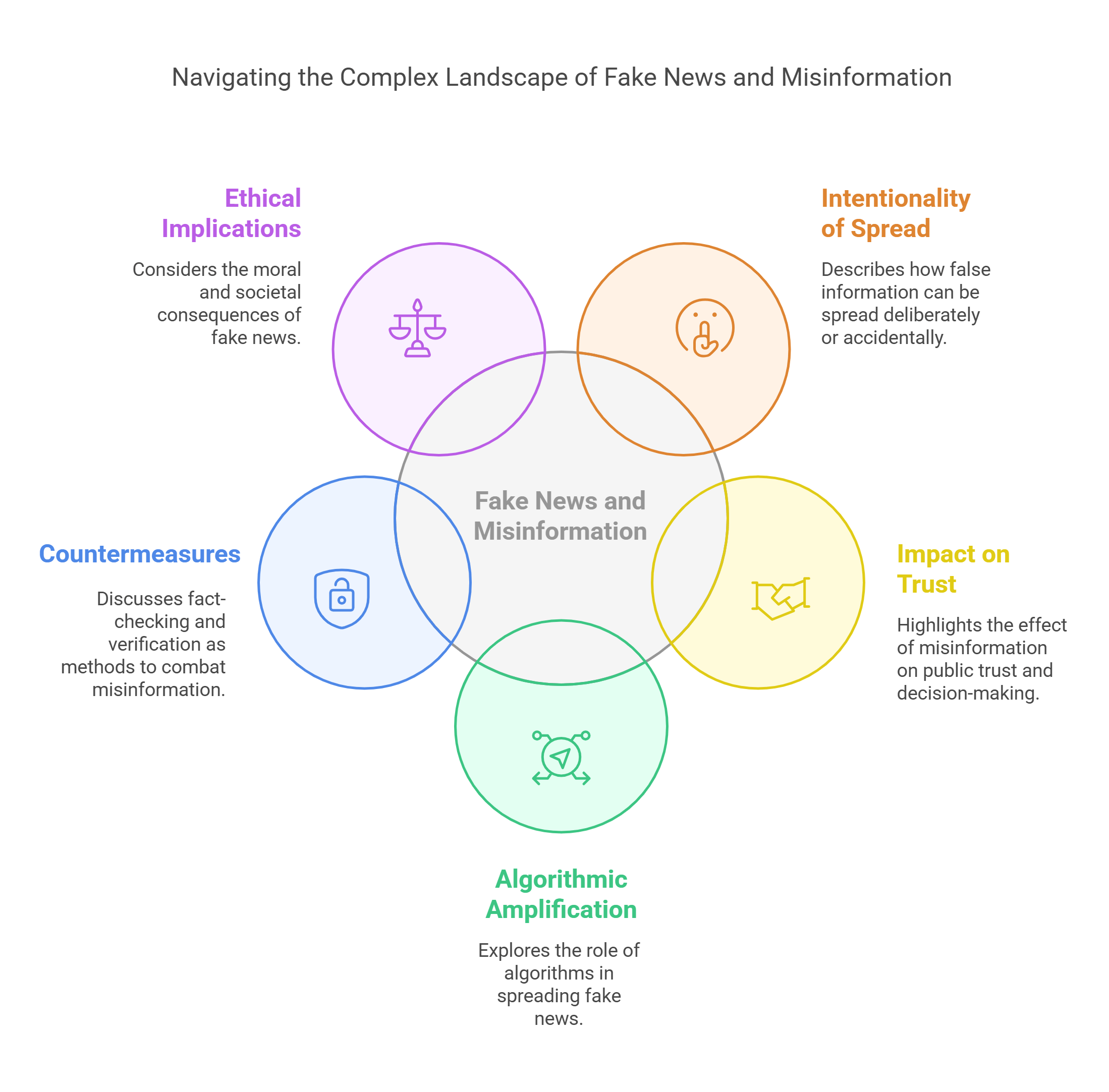
4. Media Ownership and Control
Media ownership refers to who owns the media companies, while control looks at how these owners influence the content produced. Concentrated ownership raises questions about bias, diversity, and freedom of information in RC passages.
- Concentration of media ownership limits diversity.
- Owners influence editorial policies and content.
- Impacts freedom of press and information flow.
- Raises questions about bias and objectivity.
- Public vs. private ownership dynamics.
Explained Simply: Imagine one person owns all the books in your school library and decides what books everyone can read. Media ownership is like that—it’s about who decides what news or stories people get to see.
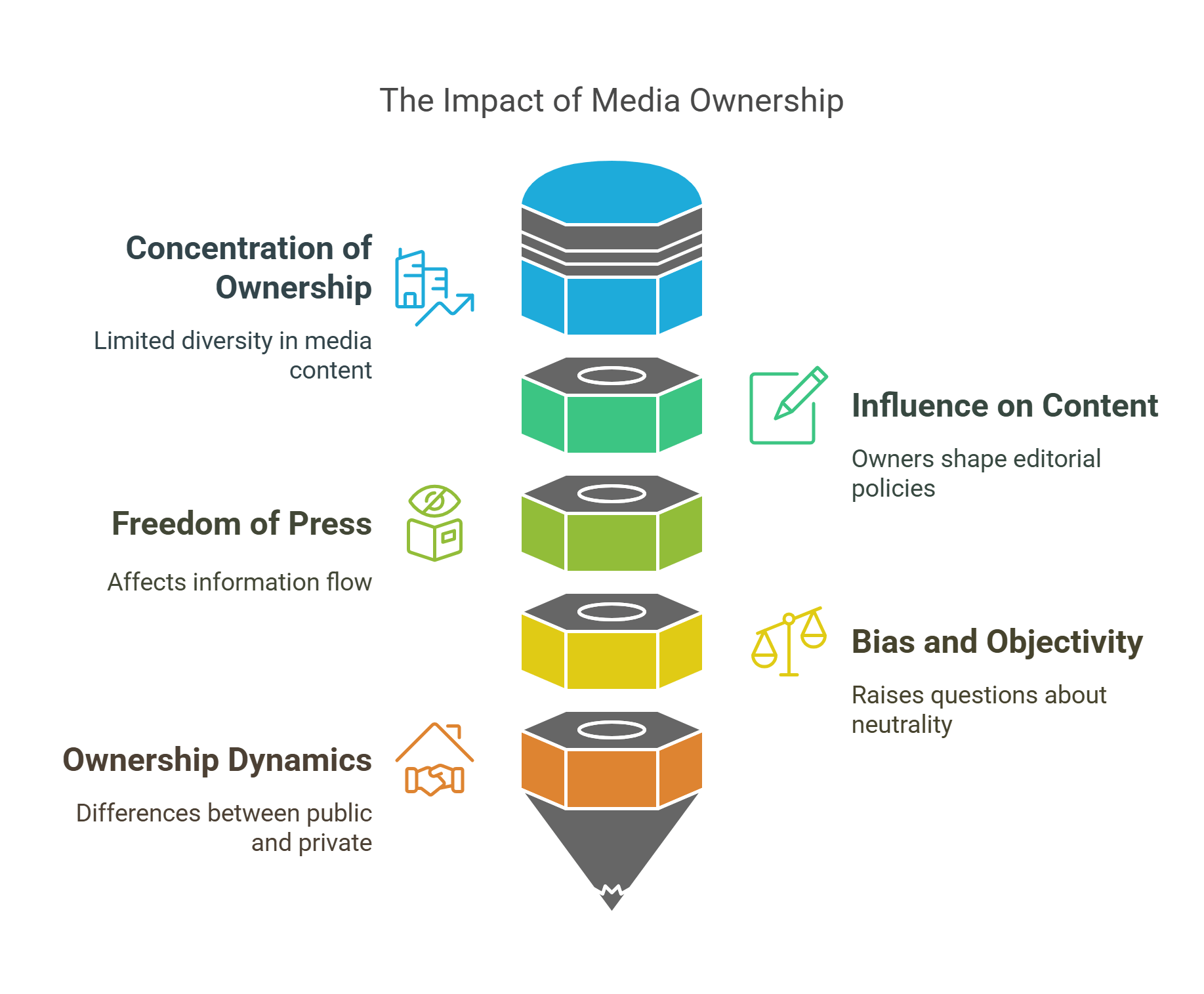
5. Role of Journalism
Journalism plays a critical role in informing the public, holding power accountable, and shaping democratic discourse. Passages often analyze its changing nature in the digital age.
- Investigates and reports facts.
- Acts as a watchdog for society.
- Adapts to new technologies and platforms.
- Faces challenges like declining trust and funding.
- Balances speed with accuracy.
Explained Simply: Journalists are like superheroes who search for the truth and tell everyone what’s happening in the world. But they have to be careful to make sure the stories they tell are real and fair.
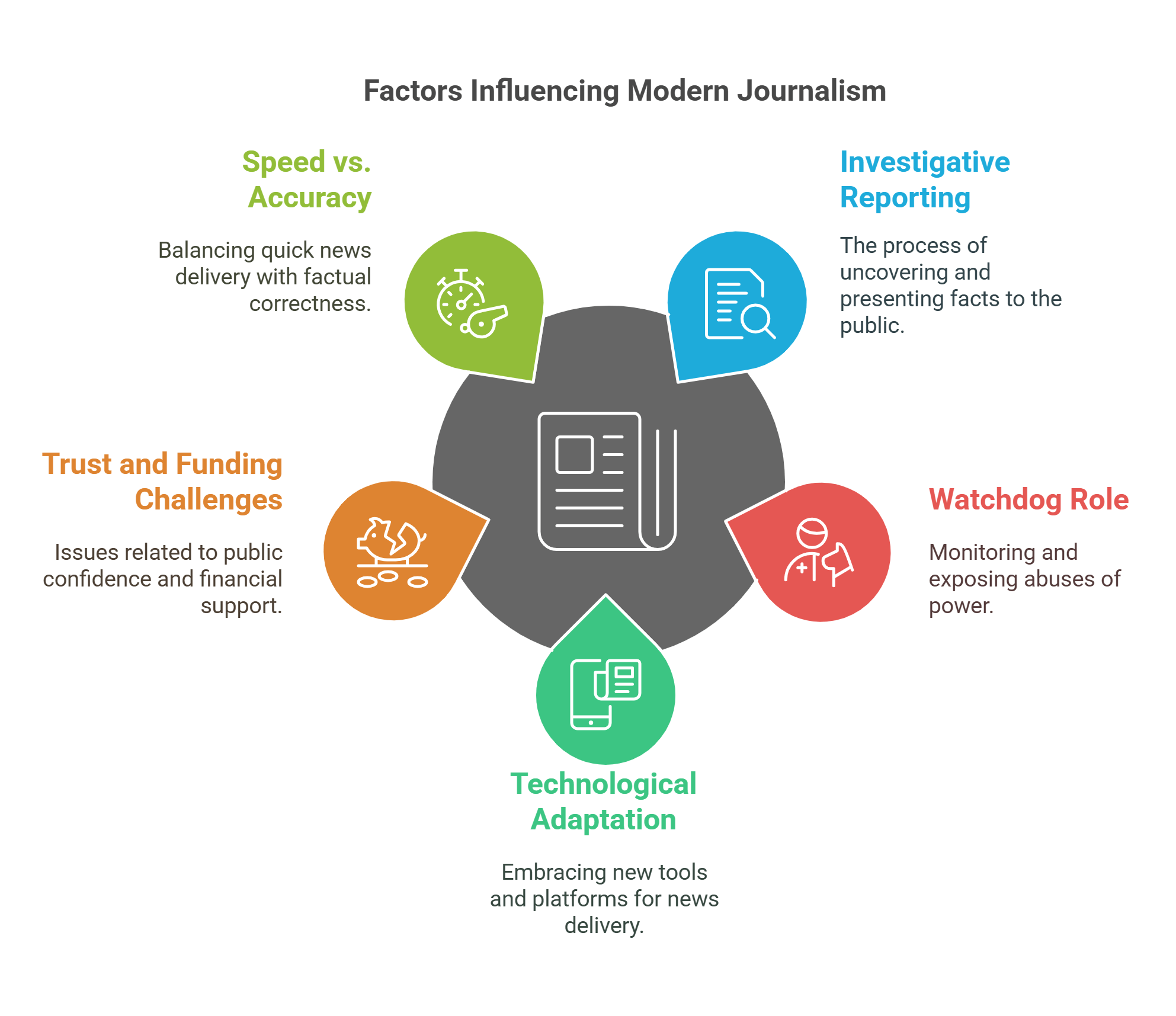
6. Media Ethics
Media ethics involves the principles and guidelines for responsible media practices, focusing on truth, fairness, and respect for privacy. Passages may highlight ethical dilemmas like sensationalism or biased reporting.
- Balances freedom of expression with social responsibility.
- Protects individual privacy and dignity.
- Avoids sensationalism and bias.
- Adheres to standards of truth and fairness.
- Navigates ethical dilemmas in reporting.
Explained Simply: Media ethics is like the rules in a game that make sure everyone plays fair. Journalists and media companies have rules to follow so they don’t hurt people or spread lies.
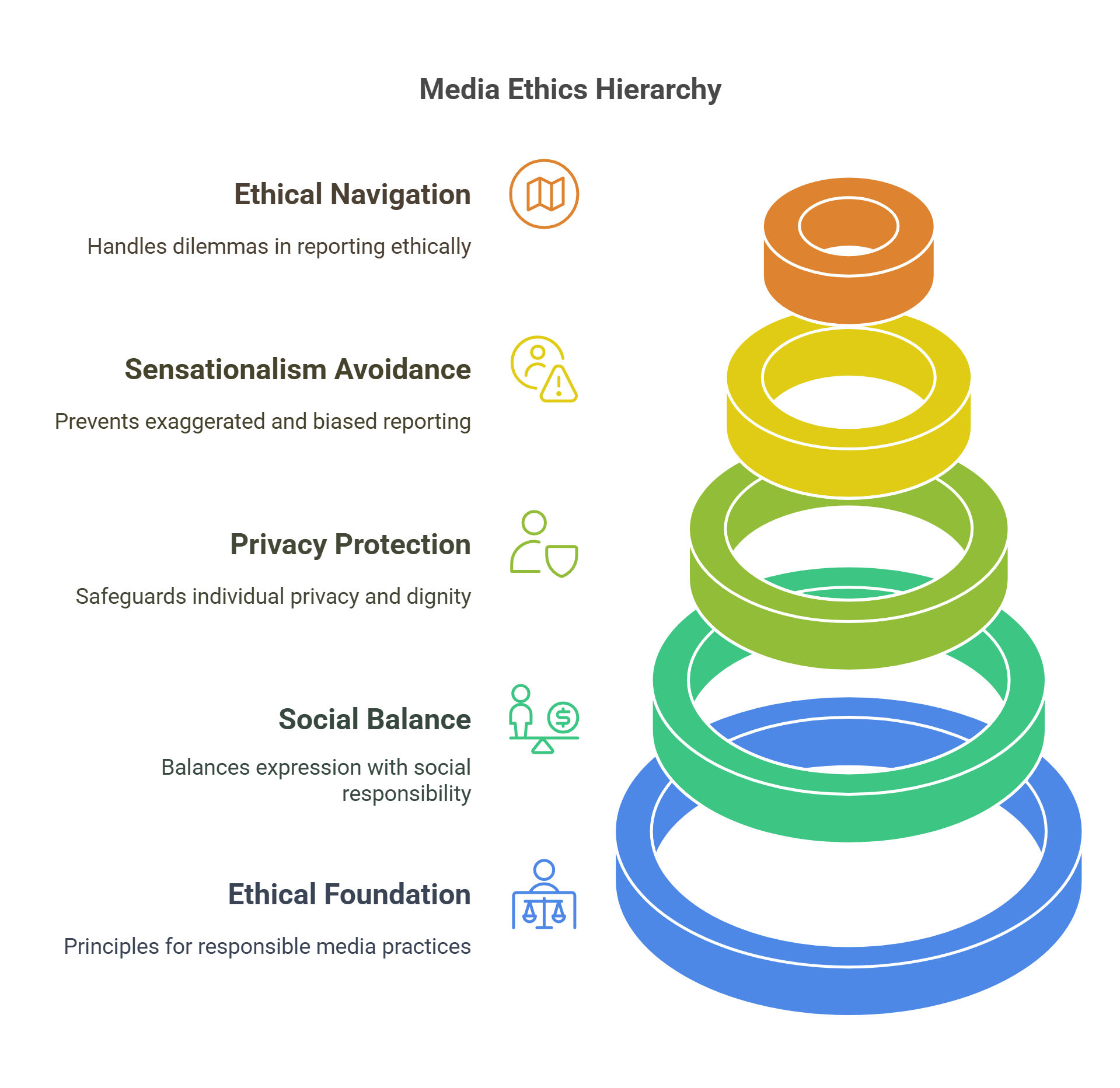
7. Digital Media
Digital media refers to content distributed through electronic devices and the internet. It has transformed how information is produced, consumed, and shared, raising questions about accessibility and control in RC contexts.
- Fast, interactive, and global distribution of content.
- Democratizes content creation but raises quality concerns.
- Challenges traditional media models.
- Impacts culture, politics, and social norms.
- Raises issues of digital divide and regulation.
Explained Simply: Digital media is like having a magic box (like your tablet) that shows you news, videos, or stories anytime you want. But sometimes, not everything in the magic box is real or good.
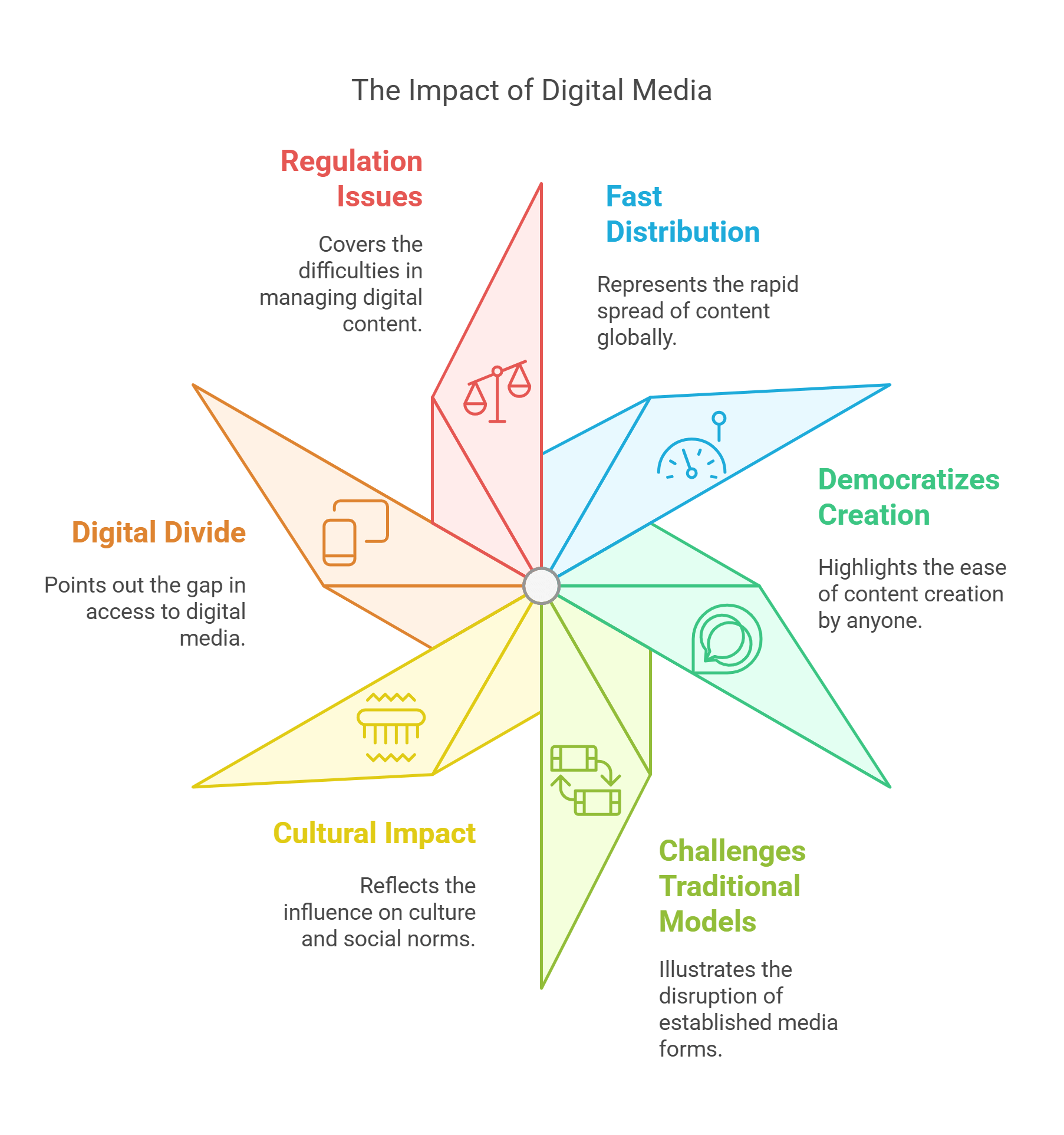
8. Broadcast Media
Broadcast media includes traditional platforms like television and radio, which distribute content to mass audiences. It remains influential, even as digital media grows, and passages often compare their roles.
- Reaches large audiences quickly.
- Focuses on audio-visual storytelling.
- Plays a major role in public opinion formation.
- Faces competition from digital platforms.
- Regulated by governments in many countries.
Explained Simply: Broadcast media is like a big speaker in your town where someone tells everyone the news or plays music. It’s one way people learn about the world.
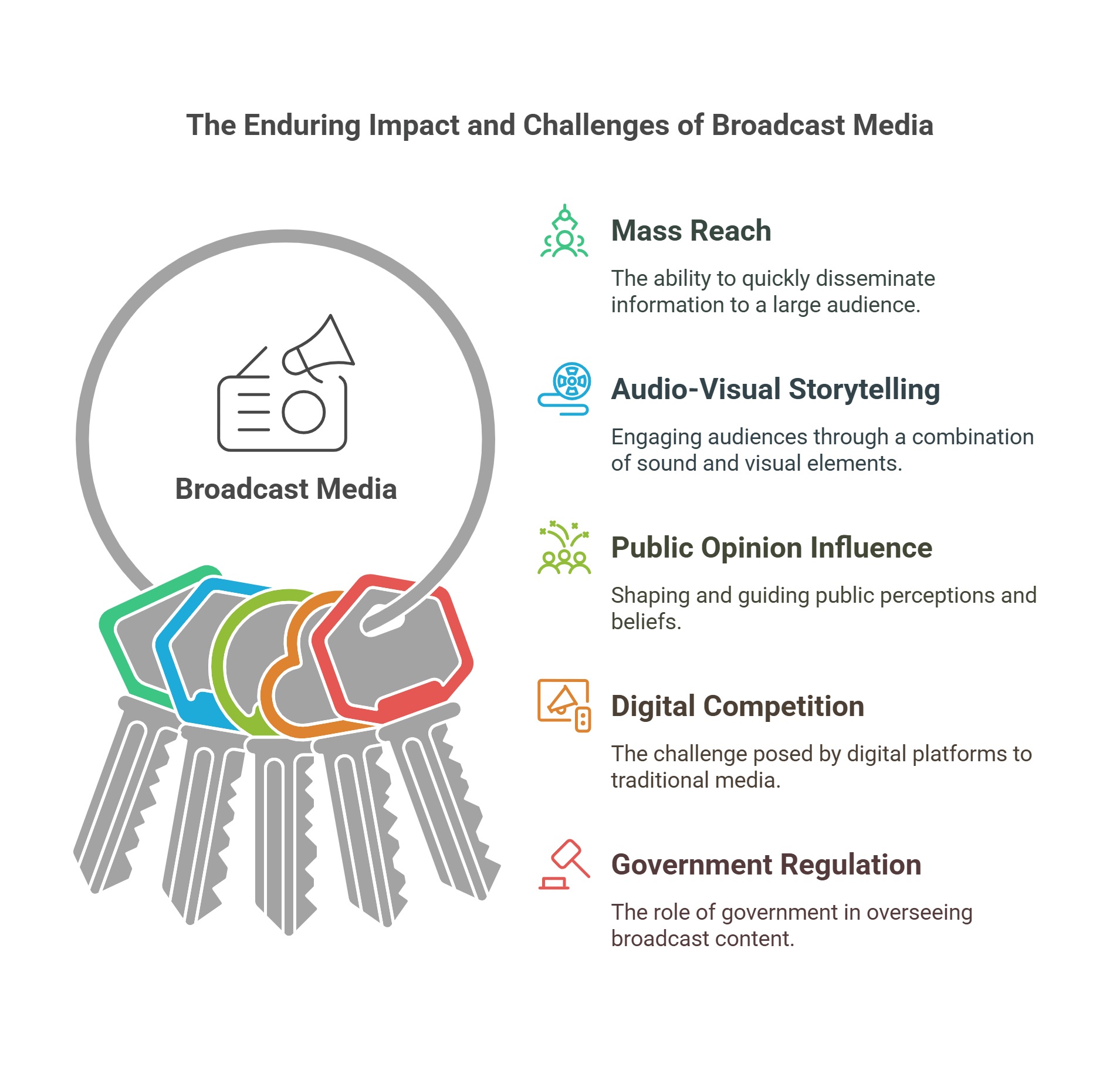
9. Media Effects
Media effects study how exposure to media influences people’s attitudes, emotions, and behaviors. This concept helps RC readers analyze arguments about the power of media on public perception.
- Examines short- and long-term media impact.
- Studies persuasion, agenda-setting, and framing.
- Explores media influence on culture and politics.
- Investigates effects on mental health and behavior.
- Considers differences in individual and group responses.
Explained Simply: Media effects are like the way your favorite movie makes you feel happy or scared. Media can change how people think or act, just like stories do.
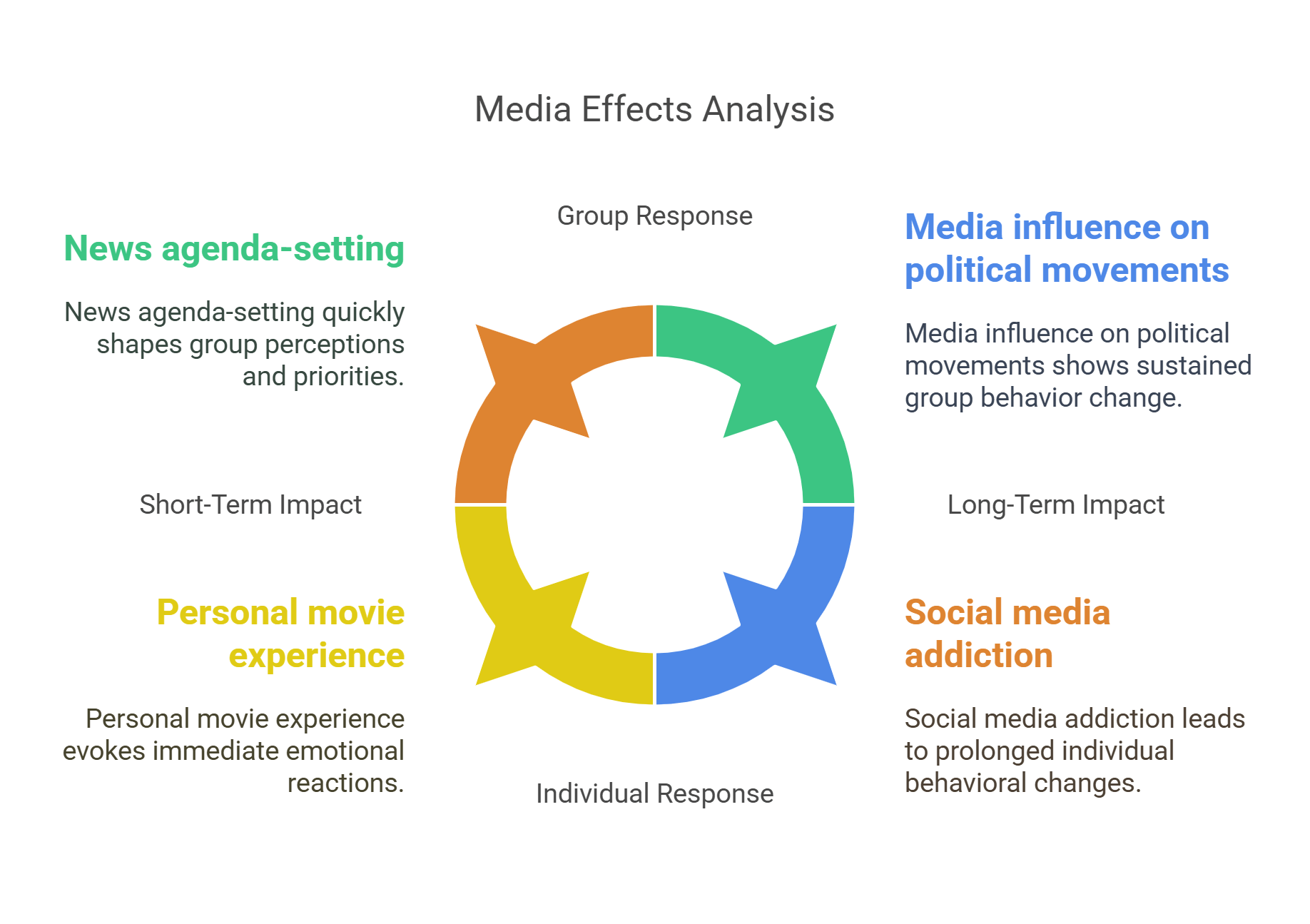
10. Communication Theories
Communication theories explain how information is transmitted, received, and interpreted. These theories are essential for understanding RC passages that analyze communication processes and their implications.
- Explains how media shapes messages.
- Covers models like the sender-receiver theory.
- Examines cultural and psychological factors in communication.
- Analyzes the role of feedback and noise.
- Applies to media’s role in society.
Explained Simply: Communication theories are like learning the rules of how people talk to each other. They help us understand why some people understand messages and others don’t.
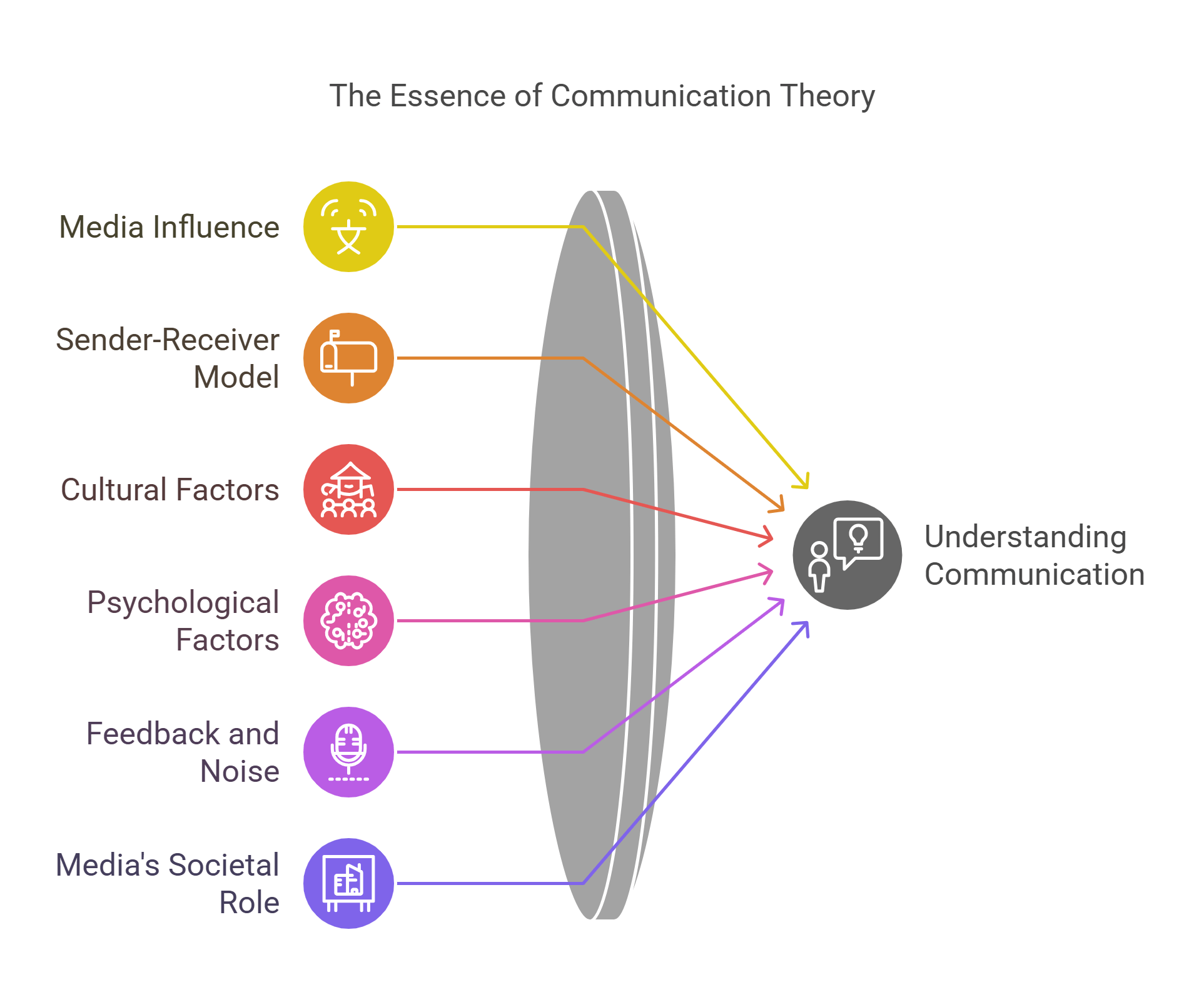
✨ Conclusion
Mastering the concepts of media studies equips you to analyze RC passages critically, especially those discussing media’s societal impact, ethical dilemmas, and technological evolution. With this knowledge, you’ll better understand arguments, recognize biases, and engage thoughtfully with complex ideas, enhancing your overall comprehension skills.

